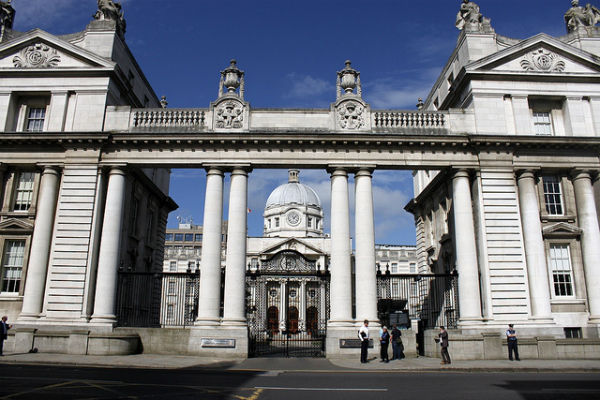From a Catholic point of view, politics is always the art of the possible. Since all politics is limited, Catholics do not look to politicians to have the answer to everything. This is why the Church does not endorse any particular political party or political strategy. In the United States, for example, it is common for Protestant denominations to endorse candidates. Instead, the Church endorses ideas and asks Catholics to think about the common good. The Second Vatican Council taught that the common good “provides a balance against too strong an individualism by emphasising the social aspect of the human person”.
“Authentic development is possible only if an individual interacts with and grows within a society. Thus, each of us is required to work for the common good which includes all others within society,” the Council fathers taught in Gaudium et Spes.
So, Catholics ought not to align themselves too closely with political parties but rather political ideas that benefit the most people.
Conscience
In Ireland, it is becoming increasingly clear that conscientious Catholics are political orphans. Less than a generation ago, a Catholic could have – in good conscience – voted for any number of political parties. However, recent years have seen a radical departure by politicians from the common good.
The starkest example of this is abortion where the lives of the most vulnerable are sacrificed to a false notion of choice. Children become victims of what Pope Francis describes as a “throwaway culture”. As the Pope has warned, in such a culture the elderly, people living with disabilities and others considered to be inconvenient soon become victims of that same disposable way of looking at human beings.
Many Catholics will feel enthusiastic about the news that former Sinn Féin TD Peadar Tóibín is to work on establishing a 32-county political movement that will have the pro-life cause at the centre of its platform. Such a movement could become a rallying point for the 723,632 voters who opted to retain the Eighth Amendment in the May 25 referendum.
Of course, no political movement is sustainable on a single issue – regardless of how vital. Mr Tóibín and his would-be political allies will want to develop a comprehensive political platform. Given Mr Tóibín’s background, this will likely be a party that will base economic thinking on a left-of-centre platform.
While some will disagree with this, and Catholics can legitimately differ about how the common good is best achieved, the Church has consistently prioritised political action to assist the most vulnerable rather than a simple laissez-faire approach to the market.
Catholics who feel at a loss when it comes to knowing who to vote for at elections will look with interest for whatever emerges from Mr Tóibín and his colleagues. It might well be the beginning of a radical realignment where people no longer vote primarily on loyalty to old Civil War divisions, but on deeply-held principles and for politicians who have been willing to sacrifice their political careers for what they believe in. We should all wish Mr Tóibín a fair wind in his endeavours.
I have had reason in this column to be critical of Labour leader Brendan Howlin on numerous occasions. But, Mr Howlin deserves huge credit for the single-minded way in which he is pursuing the case of persecuted Pakistani Christian Asia Bibi. There is no electoral gain for Mr Howlin in this, and it is an admirable example of conviction politics on an issue most of our leaders choose to ignore.


 Michael Kelly
Michael Kelly